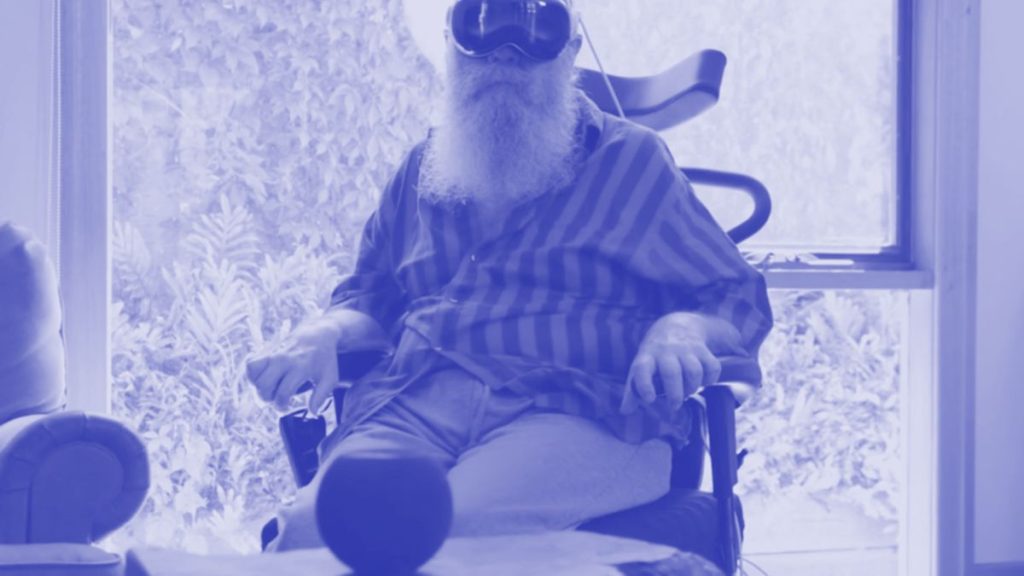The news: Synchron, an Australian-founded competitor to Elon Musk’s Neuralink, is building a foundational AI model trained on brain signals.
The AI, called Chiral, was showcased at Nvidia’s GTC conference in San Jose. It’s built to work with Apple’s Vision Pro headset and Nvidia’s Holoscan medical AI platform.
The context: Synchron is a leader in the nascent brain-computer-interface (BCI) industry. It creates devices that read brain activity and translate that into commands for a nearby computer.
Its “stentrode” BCI has already been implanted in over 10 patients who, suffering from afflictions like motor neurone disease, are unable to use their hands.
A video demo of Synchron’s AI model that was shown at the conference demonstrated how it would work in conjunction with Apple’s Vision Pro headset.
It shows one of Synchron’s first patients, a Melbournian named Rodney who has ALS, strapping on an Apple headset. Using only his brain, he’s able to text his wife, a feature Synchron has shown in the past. But thanks to the startup’s new AI smarts, Rodney was also able to control other devices in his home, including a fan, a smart speaker and a lamp.
It is achieved by both the BCI and a nearby Nvidia Holoscan, a computer built to process information for medical AI applications. Rodney’s Vision Pro was hooked up to the Holoscan unit, which provided the grunt needed to read, amplify and decode signals from his brain.
The BCI startup with the biggest profile is Neuralink, which hopes to put processors in people’s brains to achieve advancements like restoring vision in the blind. Musk in 2023 conceded to Bloomberg that Synchron was “kicking our ass.”
What they said: “We are building a brain foundation model using generative pre-training techniques that learn directly from neural data — abstracting human cognition at its source — to create features that improve our user’s lives,” said Tom Oxley, Synchron’s CEO and founder. “This is possible because of our ability to scale large datasets, by making BCI as common as a stent insertion.”
David Niewolny, senior director of business development at Nvidia, said: “We are witnessing a new computing paradigm, where technology is no longer just responding to people — it’s empowering them in entirely new ways.”

